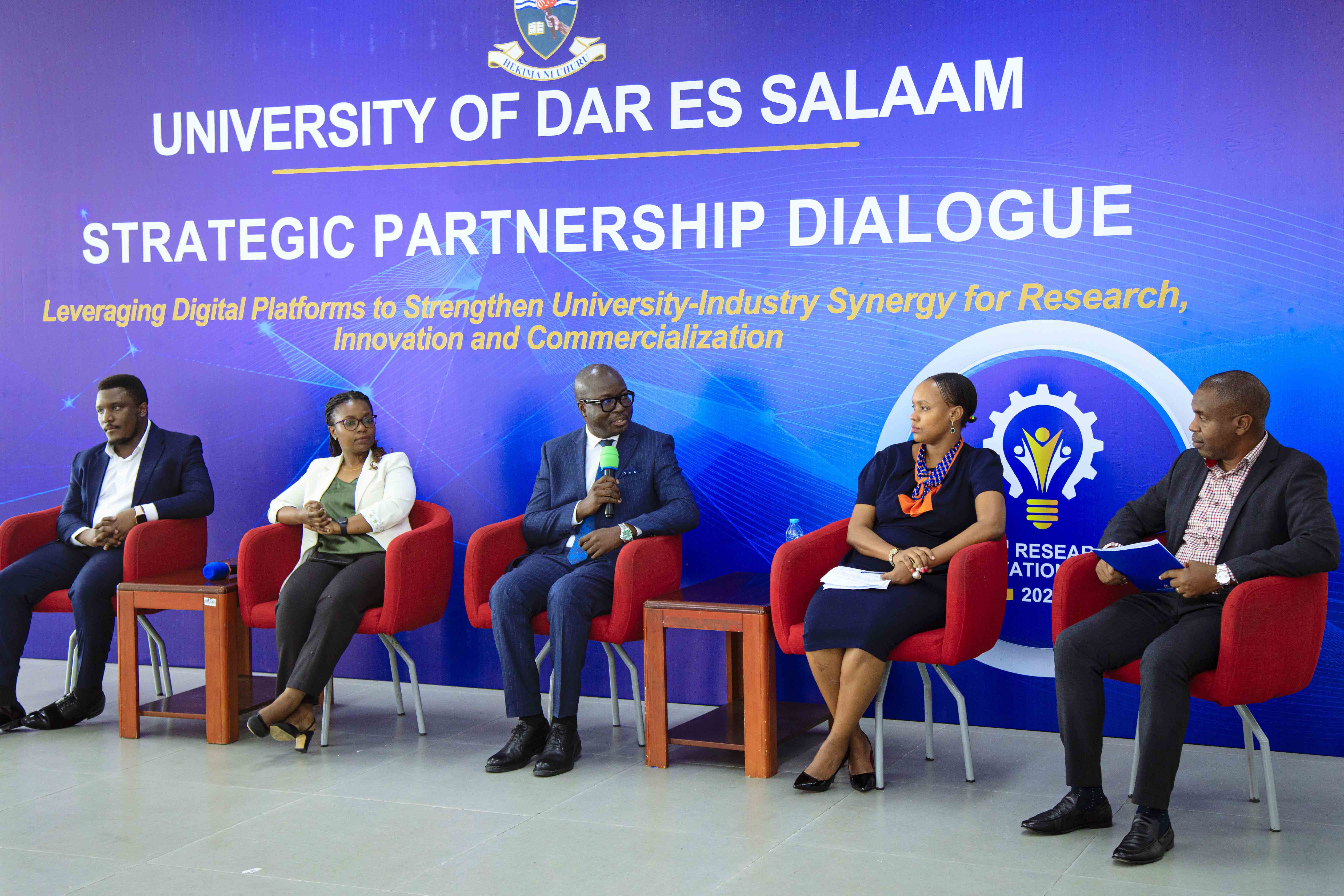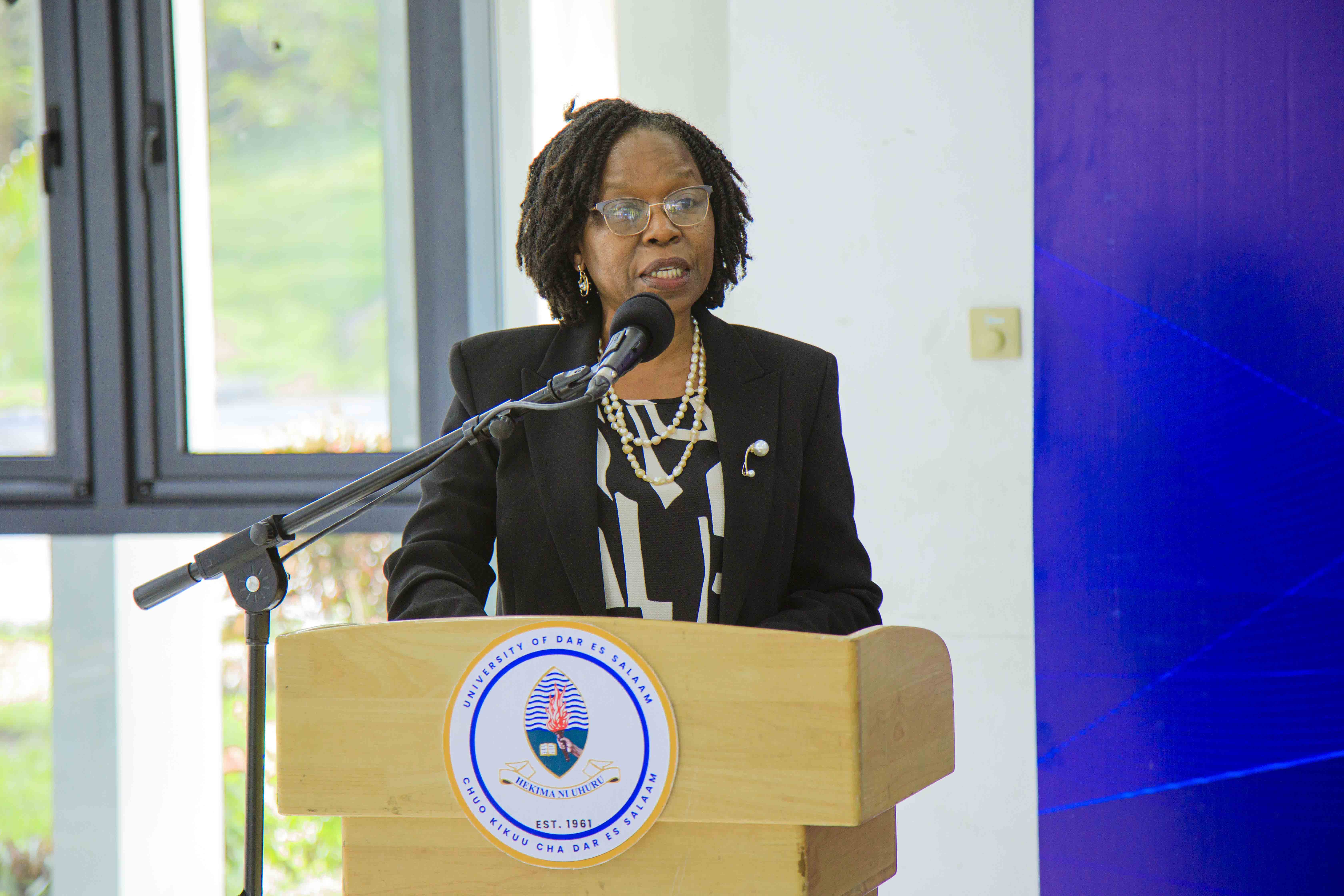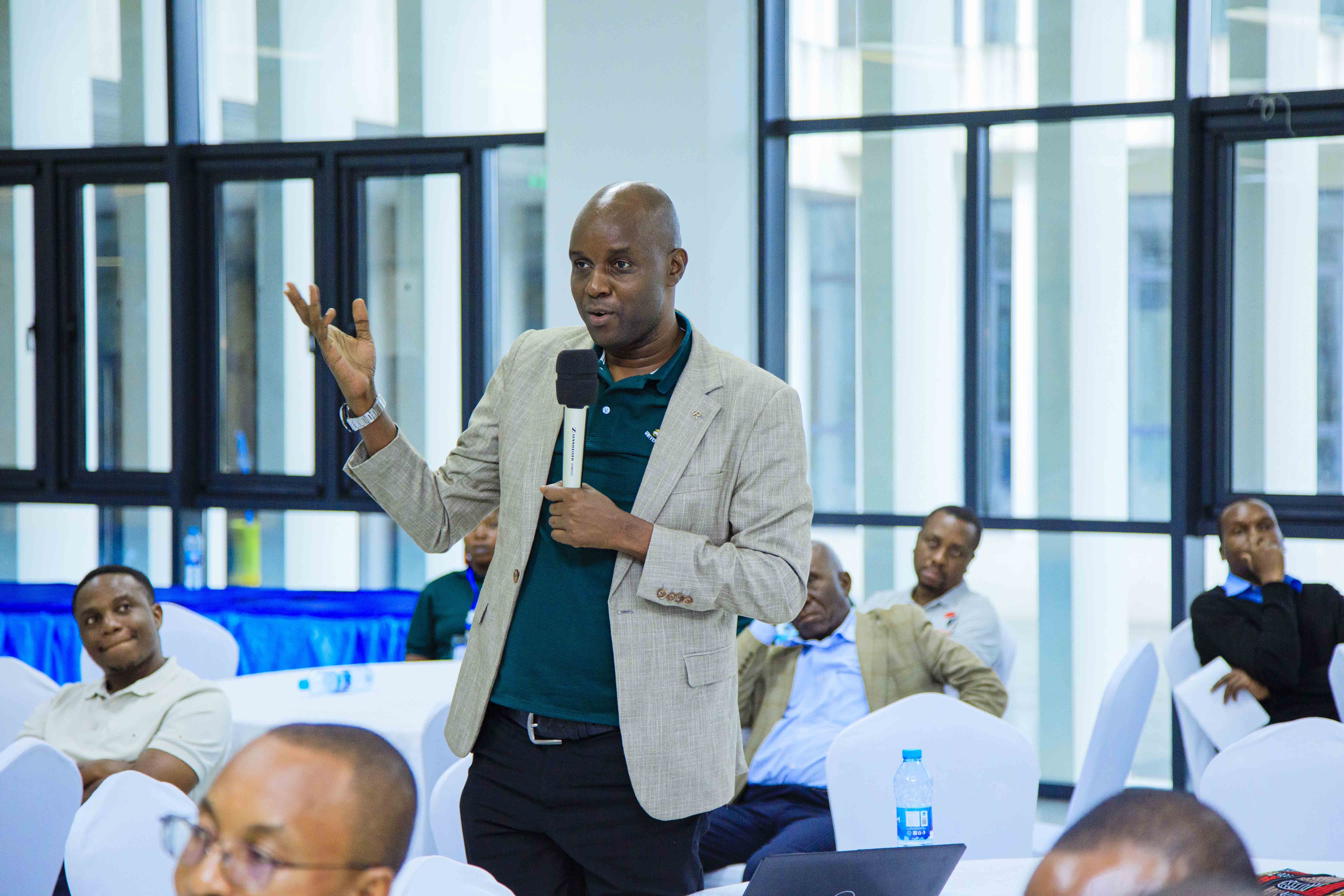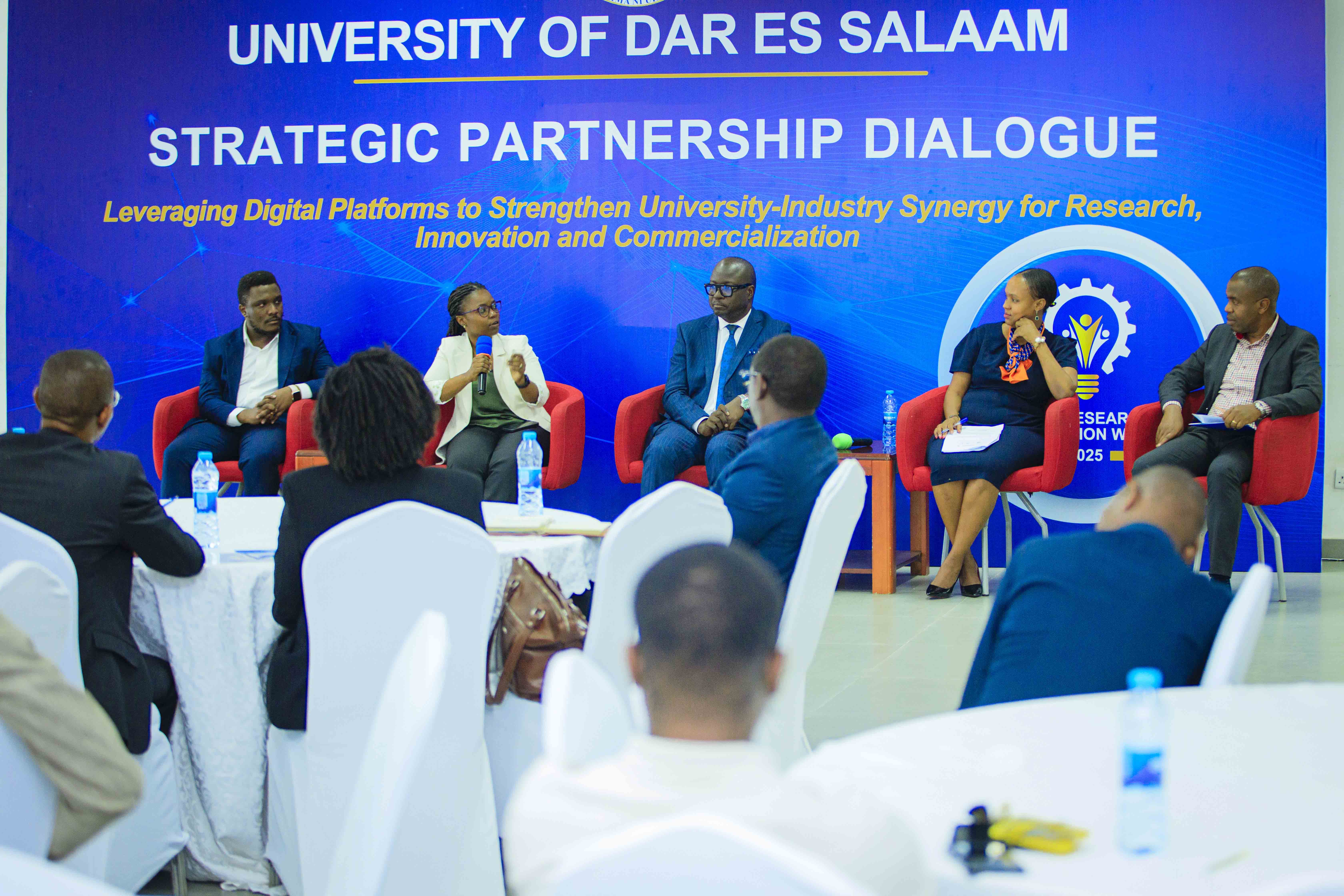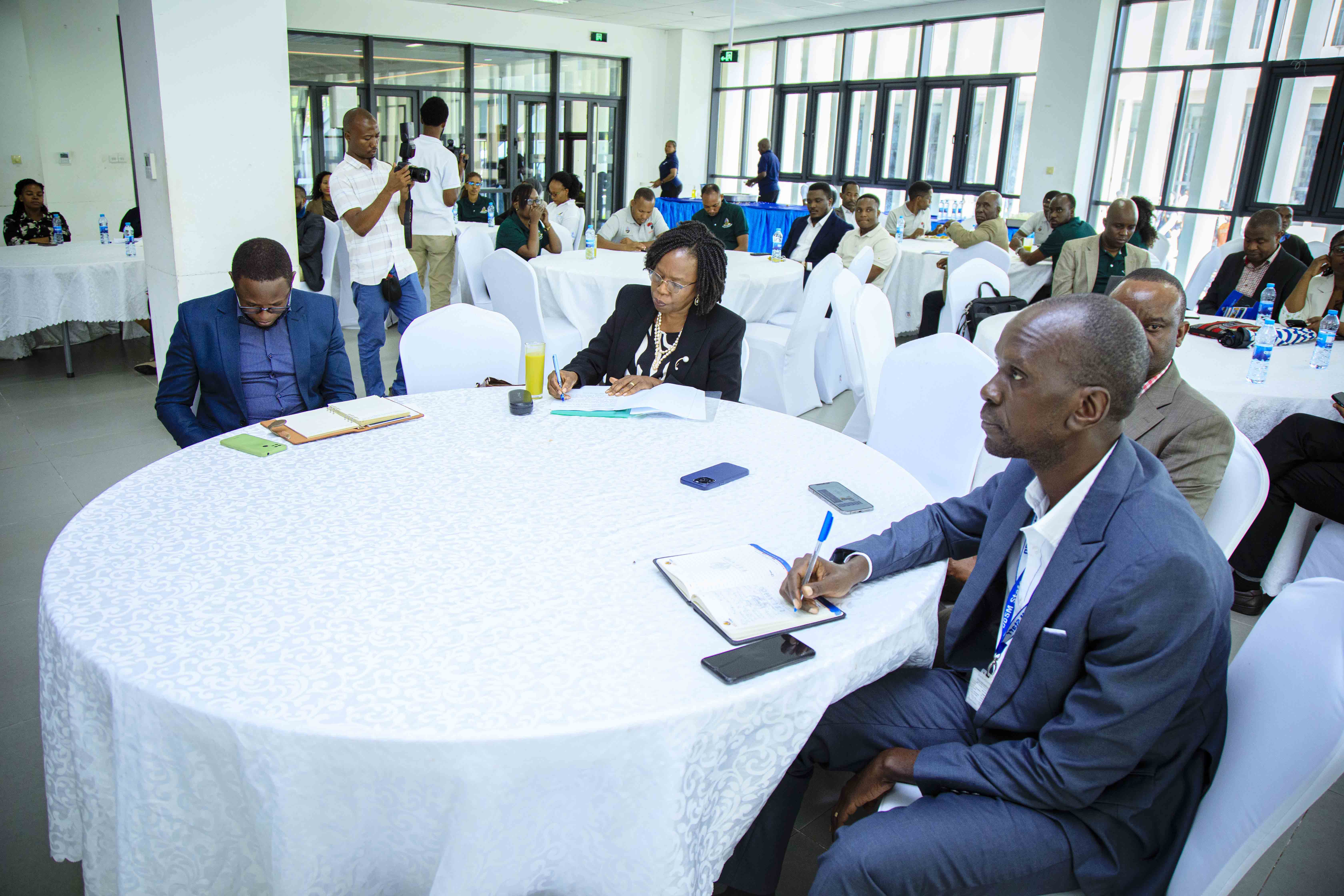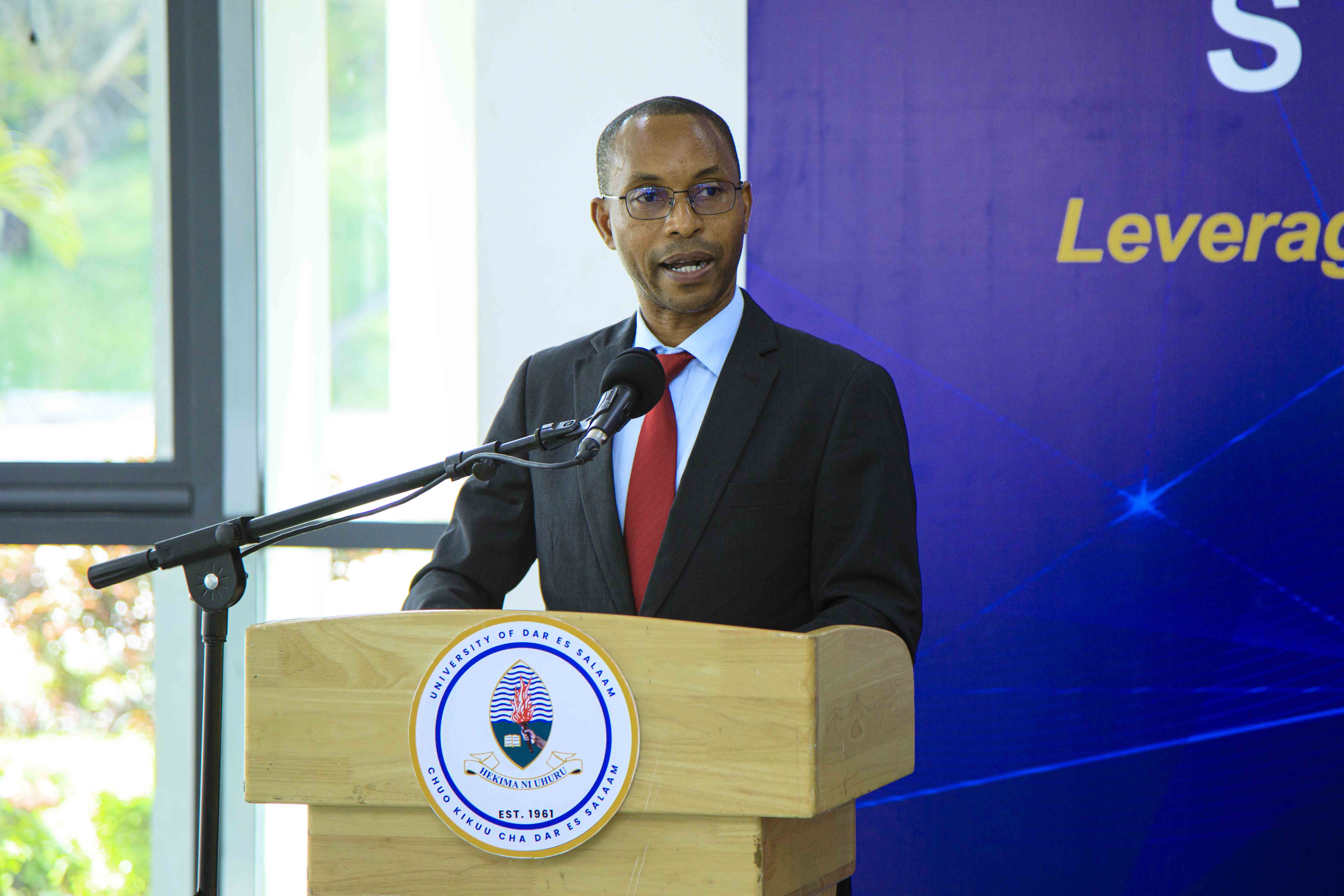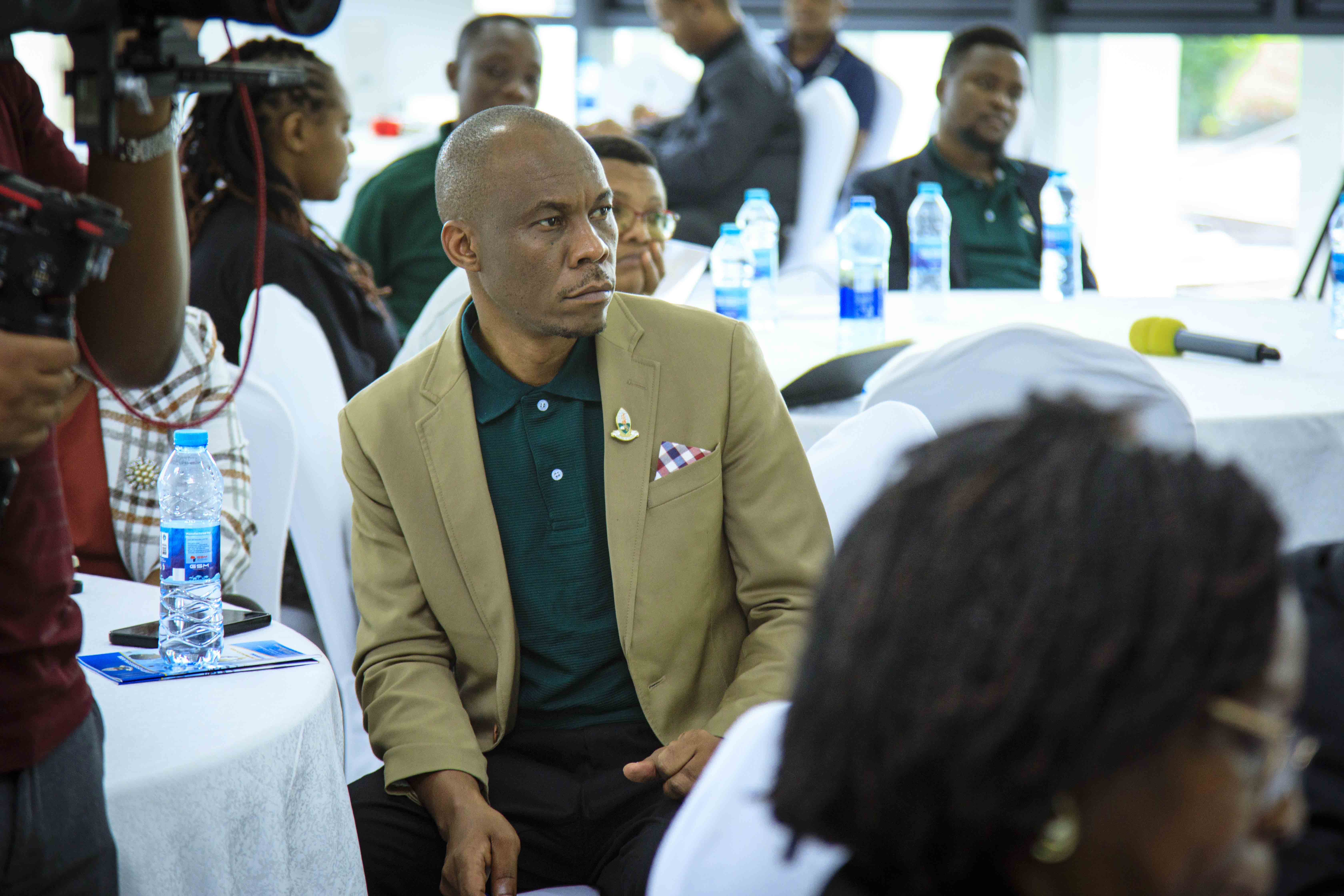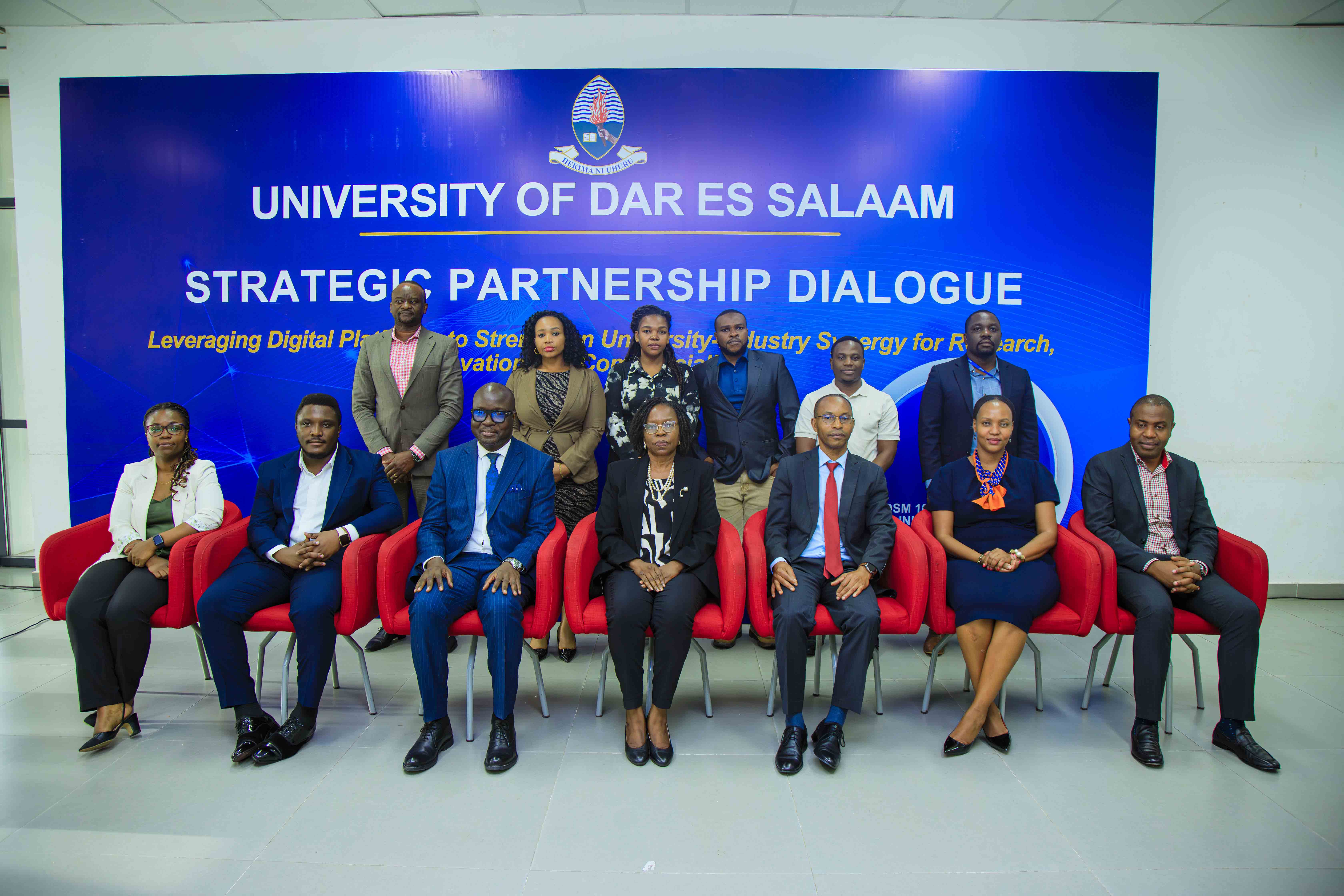Strategic Partnership Dialogue Strengthens UDSM-Industry Linkage
Special Correspondent, CMU
The University of Dar es Salaam (UDSM) reaffirmed its commitment to strengthening collaboration between academia and industry during a high-level Strategic Partnership Dialogue (SPD) held as part of its 10th Research and Innovation Week.
The event, guided by the theme “Leveraging Digital Platforms to Strengthen University-Industry Synergy for Research Innovation and Commercialization”, drew key stakeholders from government, private sector, academia, and civil society to deliberate on pathways for turning research into market-ready innovations.
At the heart of the dialogue was a collective call for deeper, digitally enabled collaboration to transform academic research into impactful, real-world solutions.
In his welcoming address, the UDSM Vice Chancellor Prof. William A.L. Anangisye reaffirmed the University’s long-term commitment to this goal as articulated in UDSM Vision 2061, which aspires to transform the institution into a world-class, research-intensive university by its centenary.
He emphasized that research and innovation are not just key functions of the University, but essential tools for national development and socio-economic transformation.
Highlighting the Vision’s focus on modernizing postgraduate training, embracing e-learning, and establishing strong alumni and industry linkages, Prof. Anangisye underscored the need for multidisciplinary collaboration and proactive engagement with the private sector.
He also acknowledged the persistent challenges in research funding and uptake, calling for enhanced efforts to build transdisciplinary research centres, allocate internal resources, and align research with national priorities.
“We are here today because we understand that fostering university-industry synergy is central to making our research more relevant, impactful, and internationally recognized”, he said.
Deputy Vice Chancellor for Research, Prof. Nelson Boniface, provided an overview of UDSM’s ongoing efforts in research and innovation, highlighting a comprehensive policy framework, successful grant mobilization efforts, and progress under the University’s Vision 2061.
He acknowledged, however, that despite these gains, the uptake of academic research by the private sector remains low—primarily due to limited engagement, donor dependency, and lack of coordinated digital platforms for collaboration.
Universities to match the pace of the digital economy
The dialogue featured a lively and solution-focused panel discussion. Dr. Salome Maro, UDSM Director of Information and Communication Technology (DICT) urged universitas to match the pace of the digital economy, suggesting structured collaboration on national policy through university-led research.
Dr. Nkundwe Mwasaga, the Director General of the Information and Communication Technologies (ICT) Commission, proposed the creation of a digital portal to connect researchers, entrepreneurs, and policy actors in real time, ensuring that innovations don’t remain trapped in academic silos.
Representing the youth innovation space, Mr. John Sicilima from YAS highlighted the urgent need to unlock resources for student-driven startups and emphasized mentorship as key to bridging the gap between talent and market readiness.
Josina Njambi from NMB Bank expressed strong interest from the financial sector to support commercialization efforts through tailored financing models and innovation-oriented funding mechanisms.
In her vote of thanks, Prof. Bernadeta Killian, Deputy Vice Chancellor – Planning, Finance, and Administration, applauded the diversity and depth of perspectives brought forward by participants.
“The ideas shared today—ranging from digital platforms for partnership, innovation hubs, targeted grants, to entrepreneurship training—remind us that the future of research and innovation lies in openness, collaboration, and bold investment in talent and technology,” she said.
Prof. Killian also reiterated the University's commitment to its Vision 2061, which envisions a world-class, research-intensive university driven by strategic partnerships and knowledge exchange. She thanked all speakers, panellists, and organizing teams for their contributions, and called for the continuation of these engagements beyond the event.
The dialogue stipulated clear next steps aimed at institutionalizing academia-industry collaboration: developing a University-Industry Digital Collaboration Portal, establishing a Joint Innovation Hub, launching targeted research commercialization grants, and expanding digital skills training across the university community.
As participants departed, the message was clear: collaboration is no longer optional—it is essential. Through meaningful, technology-enabled partnerships, UDSM and its partners are setting the stage for a more innovative, inclusive, and economically dynamic Tanzania.


